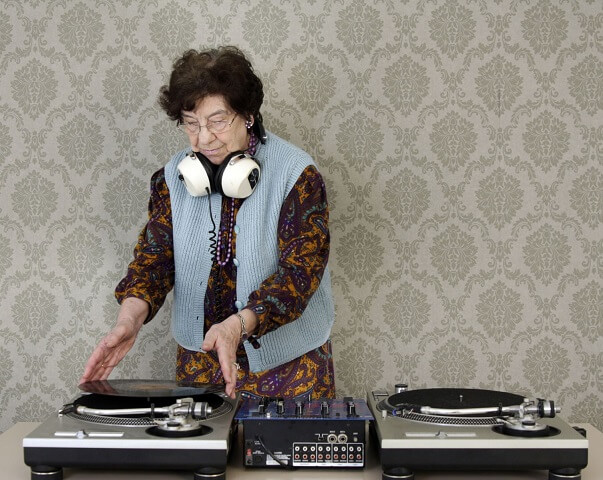
The Government is advising people over 70 years old to self-isolate while COVID-19 remains a threat to public health.
Sadly, isolation and loneliness is already a huge problem for many older people in the UK, with over five million saying television is their main company.
Research has found loneliness can be as damaging to your health as smoking 15 cigarettes a day so it is vital that family, friends and neighbours do what they can do to mitigate the effects of self-isolation.
Getting supplies
Panic buying is one of the worst things you can do right now. Shops get new stock in every single day but with self-centred panic shoppers stripping the shelves, older people can’t be as quick off the mark in grabbing essential products so may end up being unable to buy the things they really need.
While older people are being advised to self-isolate, friends and relatives should do their shopping for them. That does not mean bulk-buying for them, just a normal shop once or twice a week as long as these measures last. It is incredibly unlikely that food shops will ever close because national starvation would take a lot more lives than coronavirus ever could.
It’s important to stay at a safe distance from older people, just in case you are infected and pass it on to them. Find a safe way for them to tell you what they need, such as over the phone. If they are able to carry the shopping, leave it on the doorstep. If they are frail, make sure you take sanitary measures such as wearing gloves when you take the shopping in.
You can follow this practice for picking up their medication from the chemist.
Support with pets
At the moment, older people are still allowed to walk dogs as long as they keep a safe distance from others. To further support, or if this stops being allowed, you could walk the dog for them (don’t let the dog lick your face as this can spread the virus), and keep them in stock of pet supplies such as food, litter, hay or anything else they need for their pet.
Social contact
Any of us would struggle with being alone 24 hours a day. Talk to your older relatives about how they can keep in contact with you and their friends. Steps you could take are:
- Help them write up a list of phone numbers to put next to their home phone. Include helplines such as Silver Line. This is a free service for older people looking for advice, support, information or conversation. The number is 0800 708 090, they are open 24 hours day, 7 days a week.
- Arrange daily phone calls. This could be one longer phone call at the same time every night or two quick check-ins to see how they are. Regular contact will not only help with loneliness but also make them feel safer.
- Show more tech-savvy older people how to use Skype or a Portal. You could even set it up at the table so that they can virtually have dinner each evening with the family. With this method, they may even be able to continue social activities they did before to some extent, such as meeting certain friends at the pub each night or attending a club.
- Set up a personal alarm in case of emergencies. These are inexpensive and can be worn as a pendant or clipped onto a pocket. These can also connect to other services, such as this one from Age UK.
Keeping busy
If your relative is usually out and about, they may be at a loss of what to do in isolation. Help them to compile a list of things they could keep occupied with and make sure they have everything they need to do these activities. It’s actually a good opportunity to catch up with things they’ve been meaning to do for a while or to start new projects. Activities could include:
- A spring clean of the whole house
- Gardening
- Reading books
- Arts and crafts. If they’ve always wanted to sew a dress or build a kit-car, now would be a good time to do it
- Self-care
- Writing, anything from a novel to letters to their own recipe book
- Learning something new, such as an instrument or language
- Taking an online course
Older relatives who live with you
The Government is now advising whole households to isolate if anybody has a fever or a new cough. If you live with somebody over 70, you’ll need to make adjustments to keep them safe.
- If possible, give them their own space. If your house allows, give them their own bathroom and bedroom. If this is not possible, allot an hour each day for them to wash and make sure the bathroom is cleaned before they use it. Keep their toothbrush away from other people’s.
- Assign separate crockery and cutlery to be used only for them and wash them separately from everybody else’s.
- Get everybody in the family involved in establishing a vigilant cleaning routine, particularly things such as door handles and work surfaces, and washing their hands when they come in the front door.
- Try to make their bedroom as sufficient as possible to minimise contact. This could include putting a kettle and crockery in their room, along with food, water, tissues and entertainment. If you have any old-fashioned items such as a pitcher and basin or a chamber pot, now would be the time to put them to use.
- If they use a commode, stay well away from them when you collect it and make sure to clean it all over before you put it back.
- If you administer their medication, use gloves and keep a safe distance if possible. If you use equipment such as a hoist, clean it daily and make sure you’re clean and covered when hoisting. You could assign clothes specially for delivering care, or even clean a dressing gown to put over your clothes when you are around your older relative.


